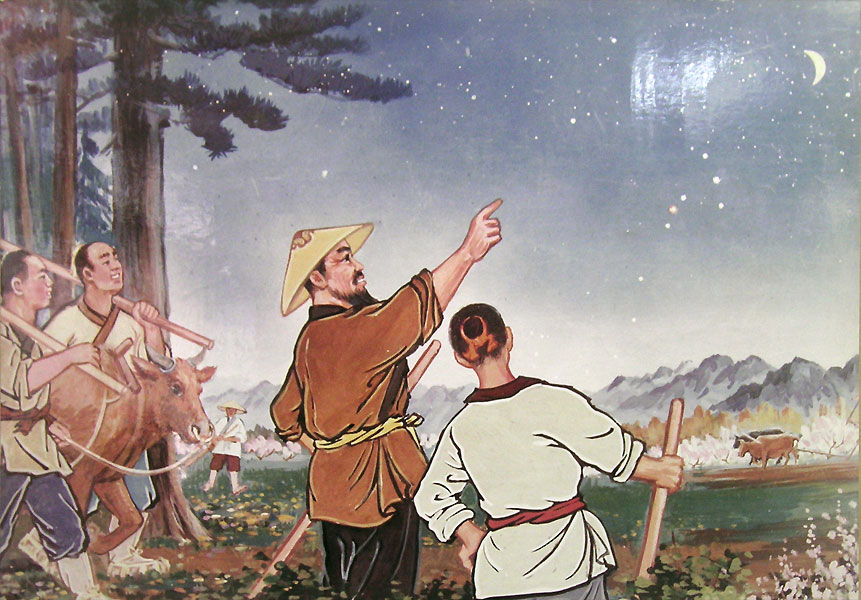| The
history of astronomy is also a history of creativity and innovation, a
record of the ability of people to observe, imagine, and
create. Adaptation to weather, seasonal changes, and the
rhythms of nature is necessary for all species. Butterflies perform
astonishing flights across thousands of miles for breeding. Birds
respond to time and seasonal changes by flying north or south as the
case may be. A bee can find its way to a flower patch, even if a
humorous researcher has displaced it from its hive. Squirrels prepare
for winter by storing food and the bears by preparing a den. A horse,
given loose reign after a convoluted trail ride through the woods, will
walk a straight line to its barn. But man when lost without guideposts
will walk in circles until he drops.
The sky provides the only constant guidepost when people leave the familiar. Noticing the regularity of events in the sky in relation to standard landmarks gives markers for time and the ability to predict seasons. In 2006, Xinhua News reported a find made by Wu Jiacai in Inner Mongolia. During an expedition to Baimiaozi Mountain near Chifeng City in the northwest, a stone, 310 centimeters long, was found on which had been carved 19 stars. The shape of the Big Dipper or Plough was on the north side of the stone. The stars are round indentations in the rock, as if someone had used a blunt instrument and ground out the shapes. The carving style is consistent with the Neolithic cultures. The shape of the Dipper is consistent with estimates of the star positions about 10,000 years ago. The carvings were found in the area where many artifacts from the Hongshan Culture dating to about 4000 BC have been found. Paintings on nearby rocks may date to the same period, but they have not been verified. They depict sun images as well as horses. |
 |
http://hua.umf.maine.edu/China/beijing2.html
Last
update: May 2007
© Marilyn Shea, 2007